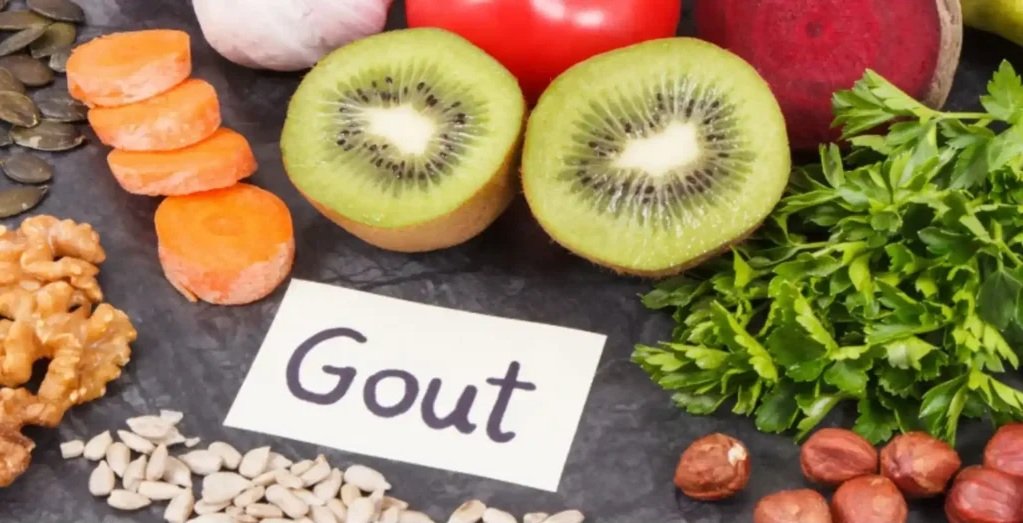Beating Gout Naturally: Whole Food Plant-Based Treatments and Dietary Strategies for Gout Relief

Gout is a painful form of arthritis characterized by sudden and severe attacks of joint inflammation, often affecting the big toe. Traditionally managed with medications, many individuals are now seeking natural approaches to alleviate gout symptoms and prevent future flare-ups. Adopting a Whole food plant-based gout treatment diet can play a pivotal role in achieving gout relief through mindful dietary choices. This article explores how natural, plant-centric nutrition can help manage and beat gout effectively.
Understanding Gout
Gout occurs when excess uric acid in the bloodstream crystallizes and accumulates in the joints, leading to intense pain, redness, and swelling. Factors contributing to gout include genetics, obesity, certain medications, and dietary habits. High levels of purines—compounds found in specific foods—are particularly influential, as purines break down into uric acid.
The Link Between Diet and Gout
Diet plays a crucial role in managing gout. Consuming foods high in purines can elevate uric acid levels, triggering gout attacks. Conversely, certain foods can help reduce uric acid levels and inflammation, providing natural relief. A whole food plant-based diet emphasizes fruits, vegetables, whole grains, legumes, nuts, and seeds, many of which are low in purines and rich in nutrients that combat inflammation.
Benefits of a Whole Food Plant-Based Diet for Gout
- Low Purine Intake: Plant-based diets generally contain fewer purines compared to animal-based diets, helping to maintain lower uric acid levels.
- Anti-Inflammatory Properties: Fruits and vegetables are rich in antioxidants and phytonutrients that reduce inflammation.
- Weight Management: Maintaining a healthy weight can decrease the risk of gout attacks, and plant-based diets are effective for weight loss.
- Improved Kidney Function: Enhanced kidney health aids in the efficient excretion of uric acid.
Key Dietary Strategies for Gout Relief
- Increase Consumption of Low-Purine Foods
Focus on incorporating foods that are naturally low in purines:
- Fruits: Cherries, strawberries, blueberries, and citrus fruits can help reduce uric acid levels.
- Vegetables: Leafy greens, bell peppers, and cruciferous vegetables like broccoli and cauliflower.
- Whole Grains: Brown rice, quinoa, and oats provide essential nutrients without high purine content.
- Hydrate Adequately
Drinking plenty of water aids the kidneys in flushing out uric acid. Aim for at least 8-10 glasses of water daily to support overall health and reduce the risk of gout attacks.
- Incorporate Anti-Inflammatory Foods
Certain plant-based foods have potent anti-inflammatory effects:
- Turmeric: Contains curcumin, which has strong anti-inflammatory properties.
- Ginger: Helps in reducing inflammation and pain associated with gout.
- Omega-3 Rich Foods: Flaxseeds, chia seeds, and walnuts support joint health.
- Limit High-Purine Plant Foods
While plant-based diets are generally low in purines, some plant foods contain moderate levels:
- Legumes: Beans, lentils, and peas should be consumed in moderation.
- Certain Vegetables: Asparagus and spinach have higher purine content but can still be included in a balanced diet.
- Avoid or Reduce High-Purine Animal Products
Even within a plant-based framework, it’s beneficial to minimize or eliminate:
- Red Meats: Beef, pork, and lamb are high in purines.
- Seafood: Shellfish and oily fish like sardines and mackerel can exacerbate gout symptoms.
Lifestyle Tips to Complement Dietary Changes
- Maintain a Healthy Weight: Gradual weight loss reduces stress on joints and lowers uric acid levels.
- Exercise Regularly: Engaging in low-impact activities like walking, swimming, or yoga improves joint flexibility and overall health.
- Limit Alcohol Intake: Alcohol, especially beer, can increase uric acid production and hinder its excretion.
- Manage Stress: Chronic stress may contribute to inflammation, so practices like meditation and deep breathing can be beneficial.
Beating gout naturally is achievable through a well-planned whole food plant-based diet combined with healthy lifestyle choices. By focusing on low-purine, anti-inflammatory foods and maintaining overall wellness, individuals can find significant relief from gout symptoms and reduce the frequency of flare-ups. As with any dietary change, it’s essential to consult with healthcare professionals to tailor strategies to individual health needs and ensure comprehensive management of gout.


